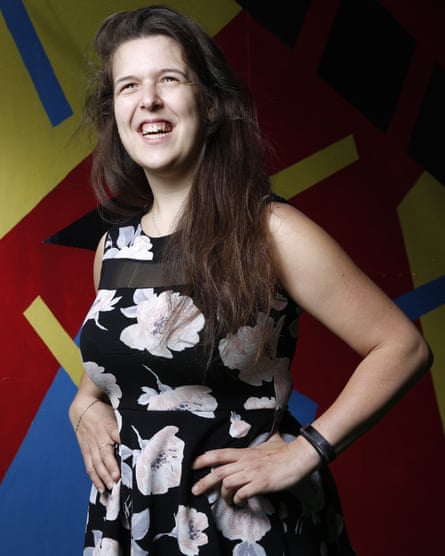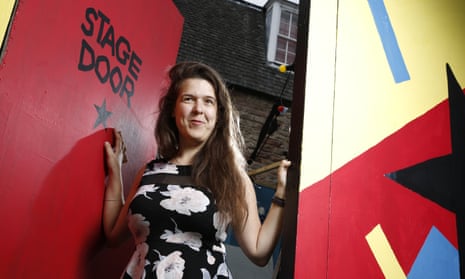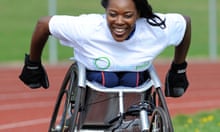How would you describe your sense of humour?
I’m very cheeky. Because of my disability, I know how to push things and I know where the line is. I can probably push that line further than a lot of able-bodied comics. I enjoy playing with what is comfortable, and trying to make people be more open and more willing to see past the disability.
In your show, the audience doesn’t really have a clue what you’re going to say next.
I love the fact that people perhaps underestimate me at the beginning, then they realise that I know what I’m doing, and have chosen every single word and every single syllable for a very specific reason. As soon as the audience thinks they know where I’m going, I switch it around.
You seem to unashamedly find yourself funny…
It’s my biggest downfall. No one finds me as funny as I find myself! Sometimes I do have to rein it in slightly, but I think that shows my personality. I find the joy in all of life, and I think if you can make yourself laugh, life can’t be that bad. I’m usually the person laughing to myself on the tube.
Have you been reading your reviews?
No, I’m in my own little world and I’m having a lovely time. I don’t want to see a negative comment or something that might make me start analysing my show instead of enjoying it. And if I read a positive review, there’s a danger of me getting big-headed. For a comedian, it’s not good to feel settled – I like that nervous feeling of not knowing if tonight will be my best show. The nerves make me perform better.

At what point did you realise you wanted to try comedy?
I toyed with the idea for ages, but I thought that I couldn’t be a comedian because people will get to my punchline before I did because of how slowly I speak. Then I realised I could use it as a device, so they get to a punchline but it’s not necessarily my punchline.
What happened at your first gig?
I went to my friend’s comedy night and, at the end, the MC said: “Does anything else want to try?” My friend tapped me and said: “Why don’t you give it a go?” So without any preparation, I got up and did it and the audience laughed. I came off and thought: “Oh God, I’ve got the bug now.”
How did you do a standup set without any material?
Because of my disability I do find that people can be a bit uncomfortable around me, so I’ve always had one-liners and jokes in my back pocket ready in case someone felt a bit awkward. Really I just used those.
Do you think comedy shows should have a purpose beyond being funny?
Before Edinburgh I did feel quite daunted, thinking “I can’t be the spokesperson for all disabled people. I’m an idiot, I can’t do that!” What made me feel better was realising that I can just talk about my life, and if other disabled people can relate to it, then great. If able-bodied people change their attitudes towards disabled people, great. But all of that is just a byproduct of me getting on stage and making people laugh, that’s my priority.
What is your experience of accessibility in comedy clubs?
It’s a nightmare. I’m not in a wheelchair, so I can get to most venues, but unbelievably a lot of clubs are still up a load of stairs and a lot of people can’t physically get there. Usually the MC is great and they’ll help me up on stage, but actually it’s not ideal because my whole style is about how I’m disabled but I don’t need help and I’m not a victim and I’m independent. All of that is a bit undermined when the audience sees that I need help getting on stage. And in terms of installing a railing, it really doesn’t take a lot but a lot of people don’t even think about it. It would mean I could start every set on my own and be my own strong, independent woman, which I want to be – and I could be if someone just thought about it a little bit.
What are you up to next?
I’m writing a sitcom with my friend Rachel Stubbings. She’s great – she directed my Edinburgh show. It’s based around the same concept of my Edinburgh show: I have an alter ego of “able-bodied Rosie” and how her life differs from mine. Kind of like the film Sliding Doors.











Comments (…)
Sign in or create your Guardian account to join the discussion